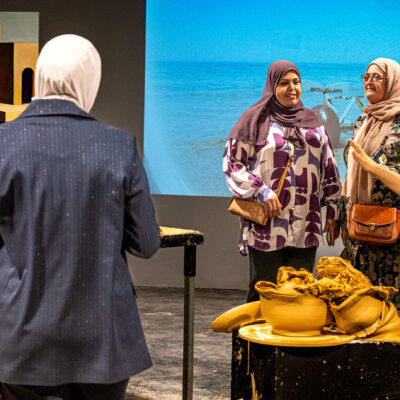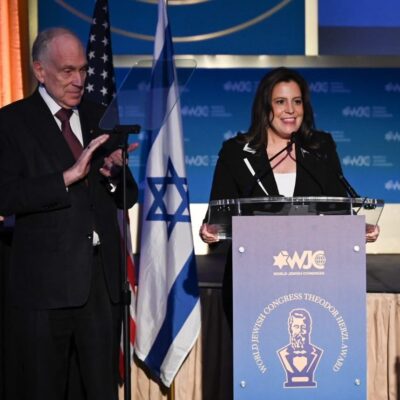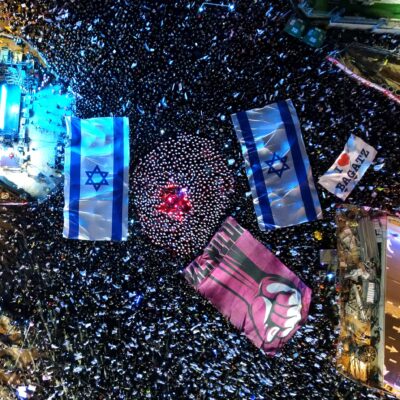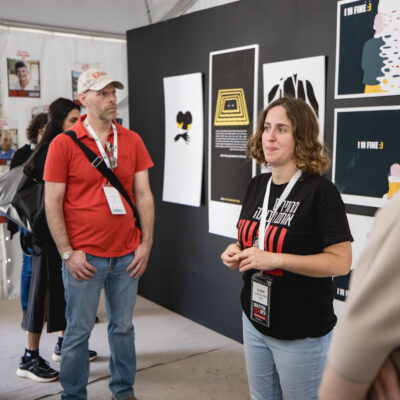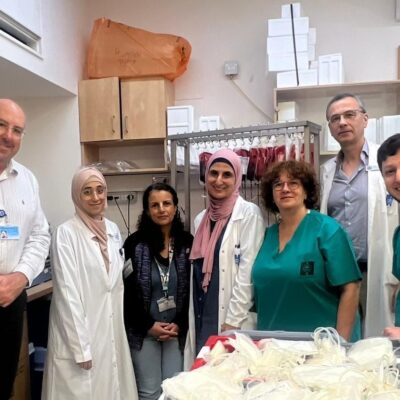Opinion
FAMILY AFFAIR
How to support Israel and still have your grandchildren speak to you
In Short
Jewish philanthropy can bridge the generational gap on Israel
Across the American Jewish world, families are divided over Israel, often along generational lines. I know, because it’s true in mine.
I’ve gone to Israel almost every year since 1966. I lived through Israel’s wars of existential threat. I remember the gripping fear of 1967 before the Six Day War turned into a euphoric triumph. I remember sitting in shul on Yom Kippur in 1973 when our rabbi announced the surprise attack on Israel.
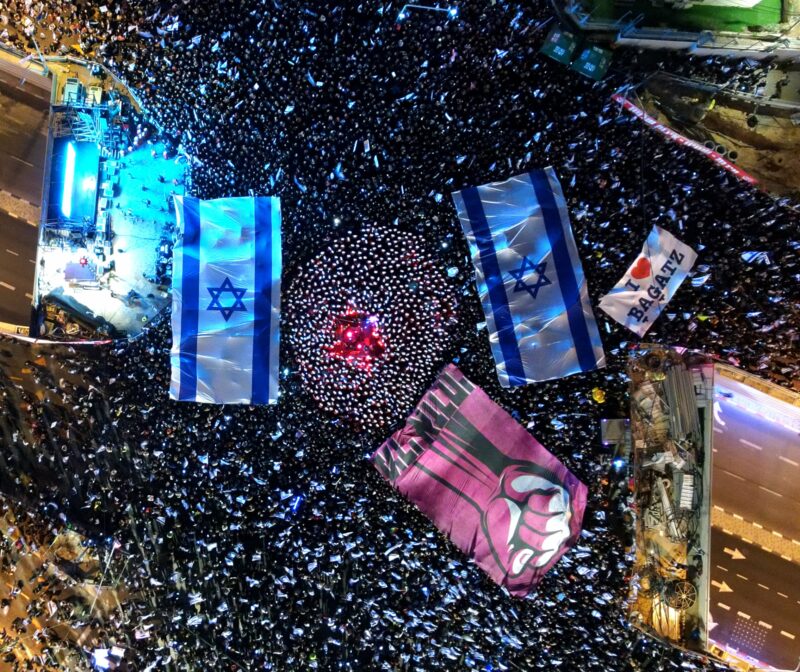
Amir Goldstein
An aerial image of a March 2023 protest in Tel Aviv against proposed judicial reform.
The Israel of my young adulthood was led mostly by secular, socialist Zionists. Peace, back then, wasn’t a word people frowned at; Israel swapped land for peace with Egypt, signed the Oslo Accords and made peace with Jordan. What I saw as Israel’s devotion to peace shaped my understanding of the country.
But that is not the Israel my children or grandchildren see.
They grew up in a different reality: an Israel already a dominant regional power. They barely remember, or were born after, the Second Intifada. What they know is right-wing governments, settlement expansion, the discriminatory Nation-State Law and heavy-handed efforts to weaken the courts. They watched Netanyahu insert himself into American politics and saw settlers rampage through Palestinian villages. To them, Israel is not a vulnerable David but a mighty Goliath.
So when they first encountered arguments that Israel is a settler-colonial project or an apartheid state, it wasn’t hard for them to see a grain of truth. Many of their peers have walked away from Jewish life altogether because they feel alienated by Israel.
In conversations with my grandson, I discovered a different path. He agreed to go to Israel, but not on a packaged trip. So I reached out to Daniel Sokatch of the New Israel Fund, and asked him to connect me with activists on the ground working for democracy, equality, compassion and a shared Jewish-Arab future. I wanted my grandson to see the country through their eyes.
And he did. Through the New Israel Fund’s grantees, he met Israelis with whom he could see eye-to-eye: human rights defenders, advocates for Palestinian citizens of Israel, entrepreneurs fighting for the rule of law, LGBTQ activists.
That trip changed him. For the first time, he saw Israelis who shared his values, who were fighting for an Israel he could believe in. And in that moment, I realized: maybe the bridge between our generations isn’t to convince them of “our Israel,” but to show them the Israelis working to build theirs.
This is the hard truth my generation must face. Many of us still see Israel through the lens of 1967 and 1973, maybe even through the Oslo years or the Second Intifada, but our children and grandchildren have been shaped by 16 years of increasingly extremist governments and by leaders who sneer at the notion of peace. Even after the horrors of Oct. 7, 2023, they are not wrong to judge Israel’s choices in the ensuing war against the backdrop of decades of avoiding a political solution.
If we want future generations to remain engaged with Israel and with Jewish life, we cannot dismiss their concerns. Nor can we cling to a double standard that demands democracy and human rights everywhere except Israel. If we do, we risk losing them altogether.
Too often, Jewish philanthropy has mirrored our family arguments, more sledgehammer than bridge. We fund projects younger Jews feel they cannot support in good conscience, then wonder why they drift away. What if we tried something different? What if we channeled our support toward the Israelis working to keep democracy alive, to defend human rights, to insist that equality and dignity are not foreign values but Jewish ones?
That’s what helped my grandson stay connected. He didn’t walk away. He found Israelis who are building a society that he would want to live in, right now, in real time, and he wants to support them. So do I.
Our legacy as parents and grandparents should not be silence at the dinner table or estrangement in the family. It should be showing the next generation that our love for Israel includes insisting it live up to its best ideals. That way, we don’t just keep Israel alive for them — we help keep Jewish life alive, too.
That’s a legacy worth leaving.
A former executive recruiter and industrial sales leader, Marcie Zelikow retired in 2001 and dedicated herself to strengthening Jewish life and institutions. She has since held key volunteer leadership roles at Jewish Family Service, the Jewish Federation of Greater Los Angeles, the Jewish Home for the Aging, Hebrew Union College – Jewish Institute of Religion, Friends of Yemin Orde and Temple Emanuel of Beverly Hills.

 Add EJP on Google
Add EJP on Google

